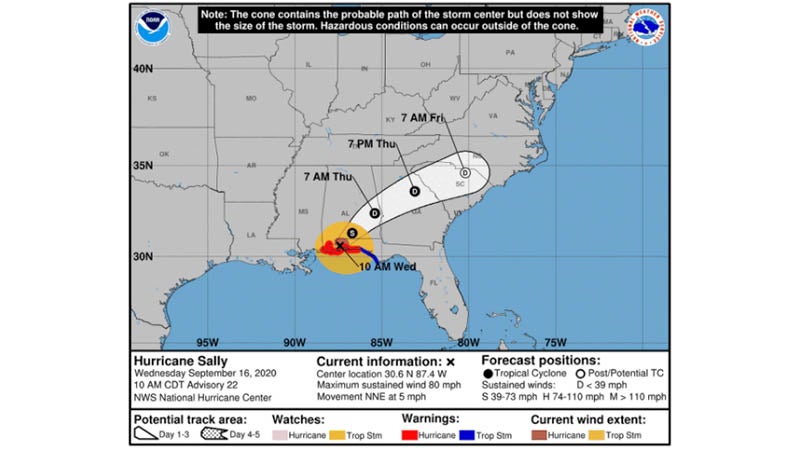Jury clears former cop in appeal
Published 12:05 am Tuesday, May 19, 2015
A Covington County jury found a former Andalusia Police Officer not guilty on appeal of harassing two Drug Task Force employees after a more-than five-hour trial at the Covington County Courthouse on Monday.
Roderick “R.C.” Covington was convicted in October 2013 on charges of misdemeanor harassment in charges alleged by DTF Assistant Commander David Harrell and the department secretary, Amanda Hart. District Judge Stephen Smith of Geneva County heard the initial case.
Covington filed an appeal about a month later, which led to yesterday’s trial.
As the verdict was read, Covington raised his arms in a celebratory fashion, and later was seen weeping beside his lawyer, Jim Parkman of Birmingham.
“Just happy,” Parkman said about the result.
Jury selection was held Monday morning and the trial got under way after lunch.
The jury deliberated for approximately 23 minutes.
“It’s outrageous,” Houston County District Attorney Doug Valeska said after the trial.
Valeska represented the State of Alabama in the case as all local attorneys and judges recused themselves. Circuit Judge Larry Anderson of Houston County presided over the trial.
The trial dealt with how the law interprets the use of obscene language and the response that is evoked from said language.
“The law requires specific intention,” Anderson said about the use of abusive language or an obscene gesture, adding that the law defines fighting words as those that provoke a violent reaction.
The state argued that Covington’s words were such that they warranted legal action against the accused. The defense argued that the whole story hasn’t been told.
“In the words of a great radio announcer (Paul Harvey), and now the rest of the story,” Parkman said during his opening statement.
The incident occurred not long after the APD withdrew from the Drug Task Force. Harrell previously testified that prior to his exchange with Covington, he was “thrown out of the APD” by then-Chief Wilbur Williams, Covington and other officers.
Witnesses from both sides, including Harrell, Hart, Covington, Andalusia Assistant Chief Paul Dean, Sgt. Jody Scott and Covington County Sheriff Dennis Meeks, recounted the incident that took place inside of the county DTF office.
The testimony included that Covington verbally harassed Harrell and Hart, both of whom testified. Covington testified that he used foul language toward Harrell on his way out of the building.
Harrell testified that he went to the building to help download evidence acquired through a confidential informant. Covington and Dean were already at the building that day because Dean wanted to speak to the informant. Covington was sitting on the couch inside of the foyer.
“When I went past him, I made a right turn and walked a few feet to the door,” Harrell said. “I said, ‘I was surprised to see you here after I was kicked out of the APD.’ ”
Harrell was then asked whether he or Hart used the “F” word at that time, to which he responded no.
“Who was the only one to use the ‘F’ word?” Valeska asked.
“Mr. Covington,” Harrell said.
Harrell testified that a short time later, Dean left the building and Covington soon followed. However, Harrell said that Covington stopped and got real close to him, so close that he could feel the pressure of his words on his face.
“He stepped up to me, and he got in my face, and said ‘f— you, David Harrell,’ ” Harrell said. “He backed me up against the wall. I thought he was going to hit me.”
Hart and Dean concurred in their respective testimonies.
Covington said when he arrived at the building, he laid back on the couch and carried on a casual conversation about global warming before the incident took place, and said Harrell’s comment about being surprised to see him after he was the reason he was kicked out of the APD.
“I was upset,” Covington said.
“Why did you let it go?” Parkman asked.
“I wanted some answers,” Covington said.
During closing arguments, Parkman said his client used the ‘F’ word as an adjective, and not to evoke a response.
“We tried to put up the rest of the story,” he said. “They key of the case is not the common use of profanity. It’s how the law deals with profanity.”
Judge Anderson, who said he rarely comments after trials, addressed the jury after the verdict was read and said he didn’t disagree with them.
“Law enforcement has a tough enough time as it is without infighting between agencies,” Anderson said. “It should be handled professionally and accordingly.
“They have a code of conduct,” he said. “I don’t think it ought to be addressed in a court room by jurors. I don’t think these situations should be played out in a courtroom. I’m glad we have this and know what’s going on.”




